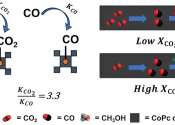Study finds activated carbon from palm kernel shells enhances methane storage
In a significant development for clean energy, researchers at Universiti Teknologi MARA have made an advance in the field of methane storage technology. Their study, recently published in the Journal of Bioresources and Bioproducts, ...









